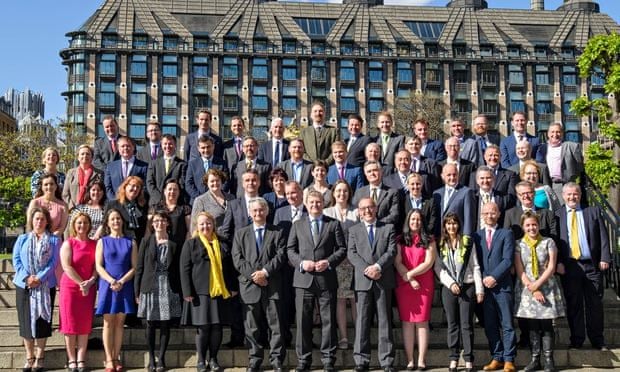As the New Labour undead descend on the carcass of the party with their regressive desire for a spasm to the right, the challenges facing the victorious SNP MPs, who won a campaign from the left, are becoming clearer.
Last week, the media and political elite were in a froth about the “illegitimacy” of the SNP’s role and influence in Westminster. Now, as David Mundell, the sole Scottish Conservative MP, is appointed secretary of state for Scotland, the loneliness of his position is pretty stark. He cuts an isolated figure, mirrored only by his shadow, Ian Murray, who this week spluttered incoherently on the radio about how he was personally opposed to Trident. Labour is resolutely attached to it and he remains bound by collective responsibility.
There’s neither mandate nor legitimacy for this government in Scotland, where it has only a single MP out of 59. Once again Scotland has voted one way and got the government England elects. When it imposes the replacement of Trident and continues to tighten the austerity screw, this illegitimacy will become clear.
It’s untenable. But how will the SNP cope with these tensions? What are the hopes and challenges for the new recruits?
The challenge is first to find meaning as individual backbench MPs, and traction as a bloc. While the focus has been on some of the youngest MPs, many are battle-hardened from the Scottish referendum yes campaign. Among these are Philippa Whitford (Ayrshire Central), Tommy Sheppard (Edinburgh East), Michelle Thomson (Edinburgh West), Natalie McGarry (Glasgow East) and Alexander Salmond (Gordon).
But some will still be reeling from the shock. Roger Mullin in Fife overturned Gordon Brown’s huge majority with a massive 37.9% swing.
Collectively, as the third-largest party, they will get a share of positions on key committees. The challenge will be to work effectively without being absorbed and assimilated into the Westminster machine. When to apply oppositional tactics and when to ameliorate and amend will be difficult decisions.
The main focus of the group as a whole will be to give voice to an alternative narrative to the austerity agenda. As Labour begins its own autopsy and remains in a state of disarray, and with the Liberal Democrats reduced to a rump, the SNP is the de facto opposition of a UK parliament it has opposed and attacked for years.
It’s a big responsibility – and one undertaken in the face of extraordinary media hostility and scrutiny. As tabloid cartoons speak of haggis and deep-fried Mars bars, the new recruits will be working quietly on behalf of their constituents. And take them at their word: the group will be defending the most vulnerable people in the country against the coming wave of cuts as the Tories’ ideologically driven welfare changes sweep across the divided kingdom.
As Gerry Hassan wrote in the Irish Times: “The SNP wave carries with it the weight of high expectations. A powerful nationwide alliance of west and east coast, Highland and Lowland, town, city and rural areas has emerged and swung behind the SNP.”
This high expectation is a very real pressure, and there probably isn’t a consensus on big-ticket issues such as the time and conditions for another referendum. But for now the challenge isn’t independence: it’s defending the poorest communities, which have been failed by Labour, from the Osborne economics and the most rightwing government we’ve seen since the 1970s.
The 56 SNP MPs are a totemic force to be celebrated – but they will need to make alliances inside and outside parliament to have the impact they desire as a small group surrounded by hostile parties.
But if the passion of the young can be married to the experience of older heads, and they are seen to be quite different from what has been portrayed, then other parties will have to be making alliances too.


No comments:
Post a Comment